Folk Studies and Anthropology Projects
Students participate in a number of collaborative projects with faculty and staff in our programs. Check out some examples of such work below, some completed and some ongoing, beginning with the most recent.
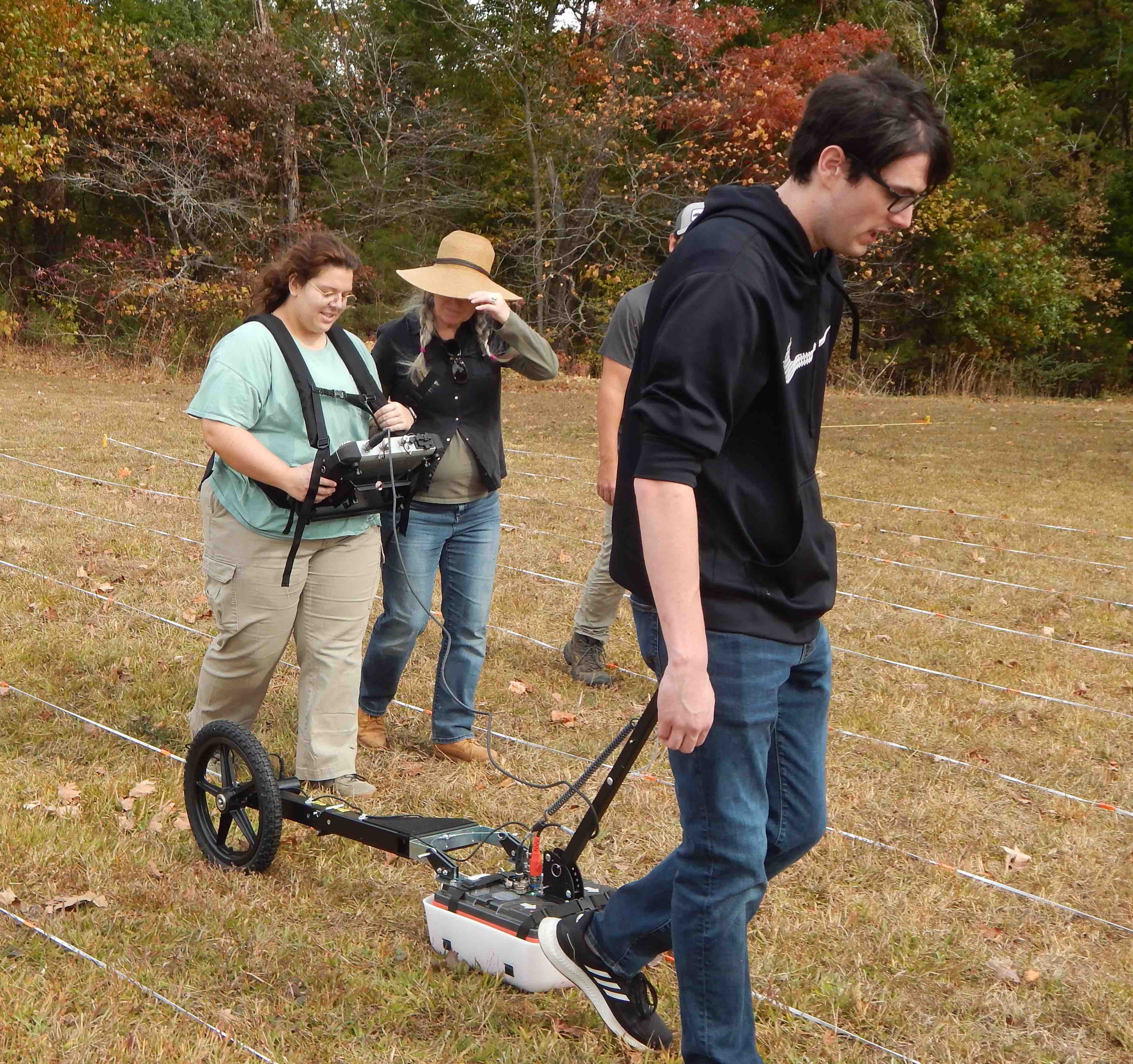
Caney Fork Research Project
Since 2022, departmental faculty, staff, and students have collaborated with the Maynard
community and the Allen County, Kentucky African American Heritage Council to document
the Caney Fork/Maynard Rosenwald School and the Caney Fork Baptist Church and Cemetery.
Along with volunteers and with the special expertise of our Kentucky Archaeological
Survey, students in Ethnographic Field Methods, Oral History, Applied Anthropology,
Cultural Conservation, and other courses have conducted archival research on the school
(one of few extant Rosenwald School buildings in the US), initiated a ground-penetrating
survey of the cemetery, drafted a map of the cemetery, conducted interviews with community
members, and compiled existing resources into an archive. In October 2022 a commemorative
marker was installed at the school during a special community ceremony.
COVID-19 and the WKU Community Oral History Project
In the spring of 2022, students in Dr. Ann Ferrell's Oral History class began conducting oral history interviews with students, administrators, staff, and faculty of WKU regarding their experience of the COVID-19 pandemic, both professionally and personally. These interviews will be deposited in the WKU Folklife Archives, and the project will continue in future classes. Interested in contributing to this project? Contact Dr. Ferrell @ ann.ferrell@wku.edu.
Farmer Cultural Awareness Project
The purpose of the Farmer Cultural Awareness Project was to gather the experiences of farmers in the 10-county BRADD region of Southcentral Kentucky through oral history interviews and develop an awareness campaign about the experiences of farmers for the non-farming public. The project was part of a larger project funded by the Kentucky General Assembly through Phase 1 Tobacco Settlement funds for the Rural Mental Health and Suicide Prevention Pilot Program. Dr. Ann Ferrell and graduate assistant Ginny Willoughby conducted the oral history interviews for this project.

Ethnographic Film Festivals
Between 2008 and 2019 the department hosted an annual Ethnographic Film Festival,
an exciting event in which graduate and undergraduate students in our programs and
from other majors screened their original ethnographic films. An ethnographic film
is a work of non-fiction that visually presents information about a cultural/folk
group, a cultural/folk practice or tradition, or a sociocultural process or event.
Unlike a documentary film, an ethnographic film is presented in the voices of the
individuals featured rather than that of the filmmaker. Historically, ethnographic
films documented the lifeways of non-Western cultures but today this methodology is
used by anthropologists and folklorists to document a wide range of peoples and subject
matter.
Our film festivals have featured productions on diverse subjects, such as: an alpaca farm, a KOA Kampground, a Napali immigrant, roller derby teams, a dance program for children with Down syndrome, gamer communities, food servers, professional wrestlers, international foods and groceries, competitive jumproping, ham radio operators, religious congregations, a tatoo parlor, and local dialects. A selection of recent media products is viewable on our Ethnographic Video YouTube Channel. The pandemic affected students' abilities to conduct ethnographic fieldwork, so Spring 2020 students instead contributed to the COVID-19 Reflections: A Multimodal Oral History Project.
Ethnographic Overview and Assessment of Abraham Lincoln Birthplace National Historical
Park
The Abraham Lincoln Birthplace National Historical Park ethnographic overview and
assessment project involved conducting research to identify, document, and assess
traditionally associated communities and ethnographic resources in and near the park,
including the traditional uses of and associations with these resources. The study
sought to identify groups who have both traditional and contemporary ties to the park
and to identify resource uses and concerns that may affect the National Park Service's
management responsibilities for natural and cultural resources located within park
boundaries. For several years, students in both the undergraduate and graduate Anthropology
and Folk Studies programs assisted departmental faculty and staff by conducting ethnographic
interviews, architectural surveys, and fieldnotes for the project.
Ethnographic Overview and Assessment of Mammoth Cave National Park
This project, like the Abraham Lincoln Birthplace National Historical Park project
above, involved conducting research to identify, document, and assess traditionally
associated communities and ethnographic resources in and near the park, including
the traditional uses of and associations with these resources. The study sought to
identify groups who have both traditional and contemporary ties to the park and to
identify resource uses and concerns that may affect the National Park Service's management
responsibilities for natural and cultural resources located within park boundaries.
For several years, students in both the undergraduate and graduate Anthropology and
Folk Studies programs assisted departmental faculty and staff by conducting ethnographic
interviews, architectural surveys, and fieldnotes for the project. The final report
is available online by the National Park Service.
Kentucky Folklife Program Projects
Students frequently take a leading role in Kentucky Folklife Program projects and events.
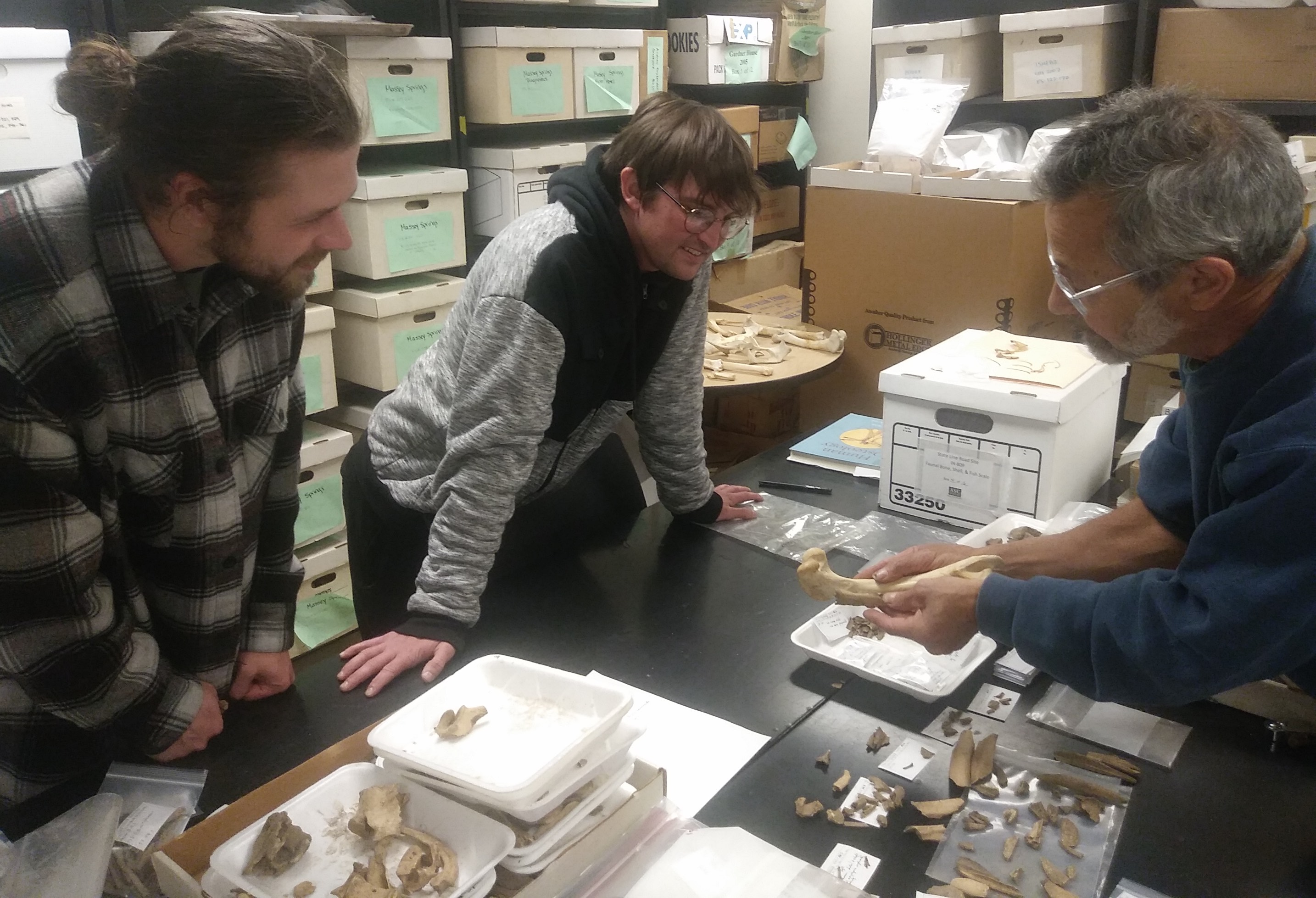
Anthropology Laboratory Projects
Students in the Anthropology Program have the opportunity to work in the WKU Anthropology
Lab, which houses archaeological, osteological, and ethnographic teaching and research
collections, field and laboratory equipment, and library resources. The lab also houses
a zooarchaeology reference collection consisting of several hundred specimens, including
complete and partial skeletons of modern animals used as an aid to the identification
of archaeological material. In 2022-2023 two anthropology majors assisted the Kentucky
Archaeological Survey's zooarchaeologist, pictured here, in identifying and analyzing
a large collection of animal bones from an archaeological site in the region. Other
examples of student research using collections are Jennifer Furlong's study of settlement
patterns over time along the Drakes Creek drainage and Joshua Keown's analysis of
a donated collection of projectile points. Dozens of other anthropology students have
gained experience with collections management and archiving by volunteering or working
at the Anthropology Lab or by enrolling in the Lab Practicum course. They have reboxed
artifacts, organized photograph collections, inventoried topographic maps, and many
other important tasks.
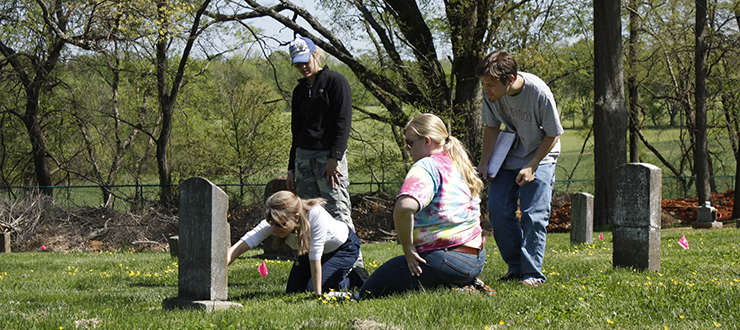
Bowling Green Cemetery Documentation Project
Students in Dr. Kate Hudepohl's anthropology classes or in directed studies have assisted
in her ongoing research documenting local cemeteries and investigating patterns in
gravemarker iconography and epitaphs. With their help, Dr. Hudepohl, a member of the
Bowling Green-Warren County Cemetery Board has recorded thousands of graves in Mount Moriah, St. Joseph, and Pioneer cemeteries
in Bowling Green. In Fall 2023 students in Anthropology of Gender double-checked raw
data in the field then analyzed data from that cemetery section, presenting their
findings at the 2024 WKU Student Scholar Showcase.
Bowling Green Bosnia Oral History Project
This is an ongoing project directed by the Kentucky Folklife Program’s Bosnia Oral History Project Committee,
in partnership with our department and community members, resulting among other things
in an exhibit at the Kentucky Museum (9/29/17 through 6/30/18; extended to May 11,
2019!) called "A Culture Carried: Bosnians in Bowling Green."
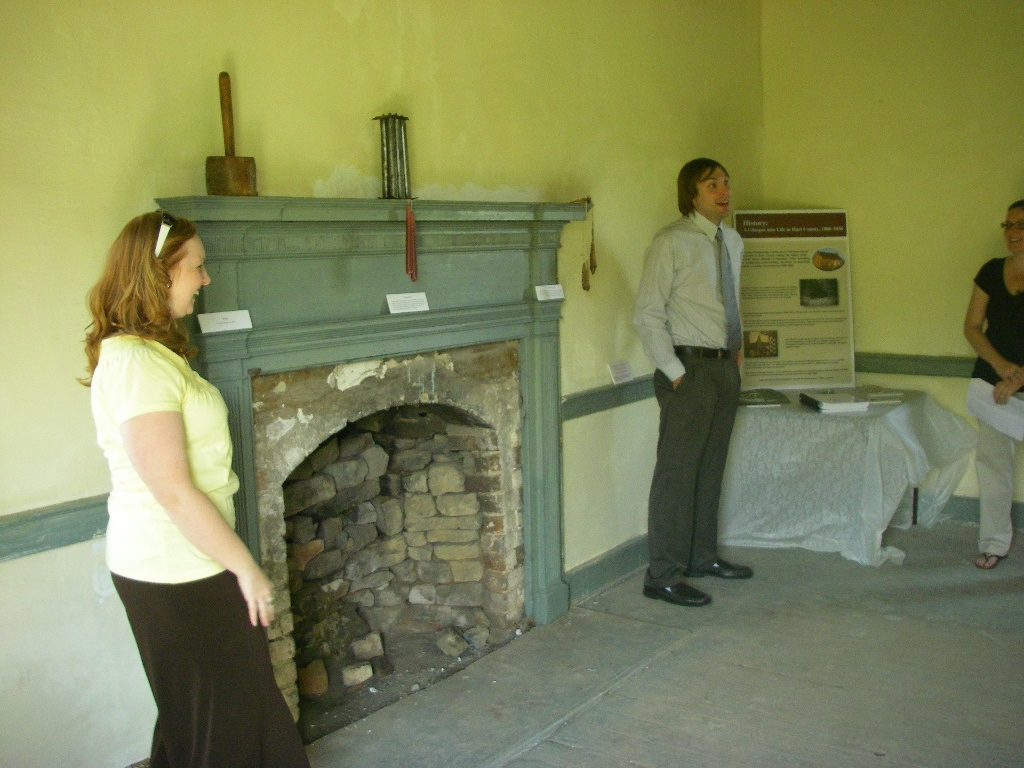
The Gardner House and the Green River Preserve
The Gardner House is an early 19th century brick hall-and-parlor house located on the Green River Preserve.
The Flemish bond house is one of the oldest homes in Hart County. Since 2003, our
faculty and students have been active in researching and documenting the structure.
The first step was a student project to develop a Cultural Resource Management Plan
and nominate the structure to the National Register of Historic Places, then students
"mothballed" the structure to prevent further deterioration. Subsequent student projects
included replacing mortar in the house, adding new gutters, and repairing and replacing
historic windows. The structure provides a valuable laboratory for students to learn
about historic preservation. At the same time we are preserving a valuable historic
community resource. Related student projects have included a short documentary on YouTube, the Gardner Historic House blog, an article in the Potter College Magazine called "More Than a Building," and a radio piece on restoration of the house.
Faculty and students in the Anthropology Program conducted archaeological surveys across multiple tracts of the Green River Preserve, documenting dozens of archaeological sites and other cultural resources like cemeteries. Their survey work on the initial tract purchase that includes the Gardner House involved shovel testing around the building. Shovel tests with an abundance of brick debris indicated the location where bricks were fired on-site. During several summer sessions, students in Dr. Darlene Applegate's Archaeology Field Methods course excavated the temporary clamp kiln adjacent to the house.
Documentation of Traditional Cultural Place: Casita Rincon Criollo
In 2011, the American Folklore Society approved the creation of a Folklore and Historic Preservation Policy Working Group. In 2011 and 2012 the working group sought pilot projects to further the Working
Group’s broader aim to better integrate folklorists and folkloristic methodology within
US historic preservation policy. Michael Ann Williams, then Department Head of Folk
Studies and Anthropology, secured funding from WKU for Folk Studies graduate students
to develop four model traditional cultural place nominations to the National Register
of Historic Places in collaboration with the New York State SHPO and Citylore’s Place Matters director, Molly Garfinkel. Of these, the nomination for Casita Rincón Criollo in the South Bronx was selected. Since 2012, students have assisted in the documentation
of the site and the on-going nomination process. The project is the subject of Virginia
Siegel’s Masters thesis “Traditional Cultural Properties and Casita Rincón Criollo” (2015).
Oral History Radio Programming
In the Fall of 2013, graduate students in Dr. Michael Ann Williams' Cultural Conservation
class produced short radio pieces from archival oral history and audio footage. The
pieces aimed to show continuing ways that historic folklife documentation material
can be repurposed in new interpretive contexts, to increase access and build education
and outreach around subjects previously documented. Listen to them via our WKU Folk Studies Sound page!
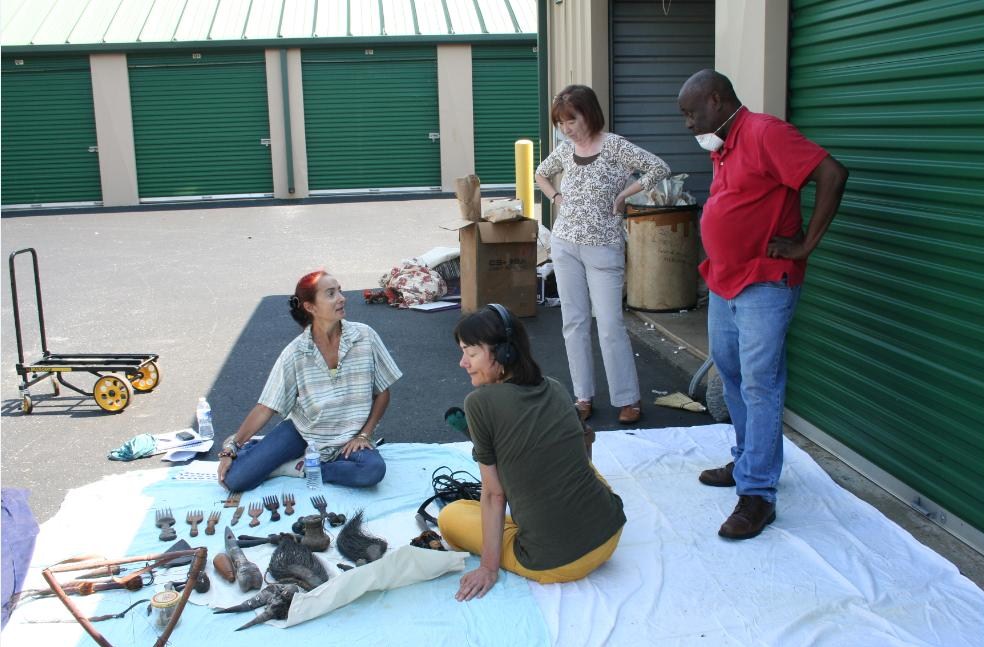
Liberian Donation
Dr. Michael Ann Williams's 2012 Museum Procedures and Preservation Techniques class
developed an exhibit with a generous donation of Liberian artifacts from Coppelia
Hays. Dr. Williams and Dr. JAK Njoku, pictured here, worked with Ms. Hays to select
items for the donation from her father's collection, acquired during his career in
the foreign service. The Coppelia Hays Liberian Collection catalogue is now available online.
Allen County High School Project
Dr. Evan's Folklore and Education class worked with Allen County High School Advanced
Placement teachers and students to document folklife and oral history in Allen County.
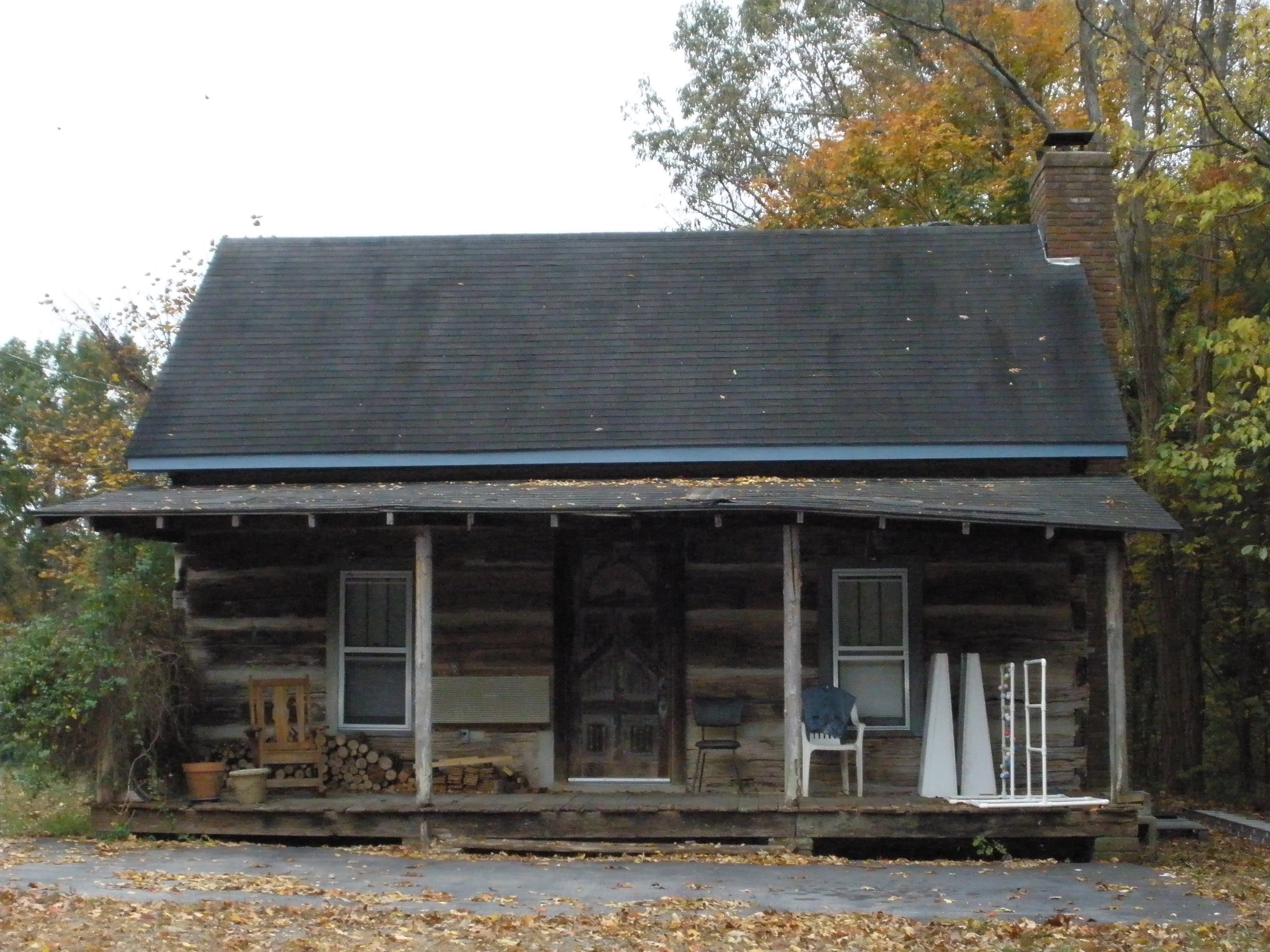
Allen County Log House Survey
In the 1970s and 1980s, student teams in the Folk Studies program completed a survey
of existing log structures in Allen County, Kentucky. In 2012, Dr. Michael Ann Williams's
Vernacular Architecture class revisited and updated these surveys. Students started with the existing Allen County Log Structure survey forms and used
USGS topographic maps, satellite GPS imaging, and county road maps to scout out the
original log buildings, and to look for any additional buildings not on the original
surveys. When students located a structure, they took new photographs of the location,
spoke with owners, noted any changes in the building's use or conditions, and updated
the structure's address listing. Students then filled out new survey forms with the
updated information for all surviving log structures, and filed these surveys with
the Kentucky Heritage Council. According to the original surveys, between 1979 and 1983, 94 log structures were located
in Allen County. In 2012, WKU students found that 49 of these buildings (approximately
52%) were still extant. In addition, five log buildings were located that had not
been documented in the previous surveys. Students found that many of the extant log
structures had been maintained via weatherboarding or other rehabilitation strategy.
Not all of them had been maintained properly. Of the log structures new to the survey,
many literally "came into" Allen County since the 1983 survey: a two-story single
pen log home was dismantled and moved from Simpson County, Kentucky into Allen County;
and yet another had moved in from Glasgow, Kentucky. Sadly, still other structures
documented by the 1970s and 1980s surveys were found in ruins, or were reported demolished. Copies of the survey results are on file with the Allen County Historical Society
and the Kentucky Heritage Council for use in ongoing educational programs and survey efforts.
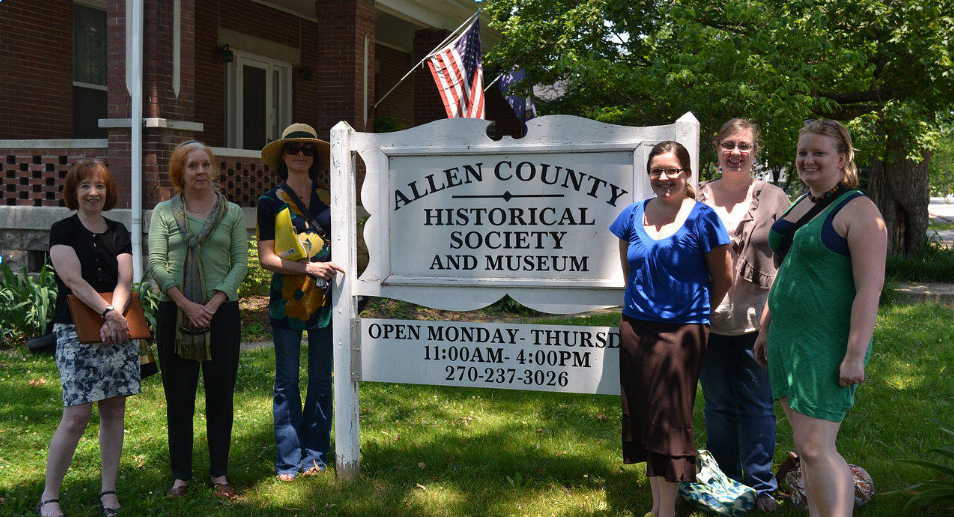
Allen County Folklife and Oral History Project
In 2011, the Folk Studies and Anthropology Department received a grant from the Laura
Goad Turner Charitable Foundation to undertake a major, two-year ethnographic fieldwork
project based in Allen County, Kentucky. Building on work by a team from the Newseum
in Washington, D.C., our students documented a broad range of historical and cultural
themes, identifying the elements that make community life in the region unique, including
the rich and diverse music, religious life, social gatherings, and patterns for formal
and informal commerce. Using recorded interviews, photography, and videography, and
staffed by WKU faculty and trained graduate and undergraduate students, the project
resulted in a comprehensive body of material located at the Community Action Center
in Scottsville, as well as the Special Collections Library and the Manuscripts and Folklife Archives at Western Kentucky University. The materials have been collected according to professional
archival standards so that the product will be available to scholars as well as residents
of Allen County long into the future. In 2013, the Kentucky Folklife Program and Kentucky
Arts Council partnered to train community members in Allen County as Community Scholars with the intention to increase active community collaboration so that once the WKU
project was complete, the initiative would continue under community leadership.
237 Ivan Wilson Fine Arts Center | Potter College of Arts and Letters | Western Kentucky University | 1906 College Heights Blvd. #61029 | Bowling Green, KY 42101-1029 | Email: fsa@wku.edu | Phone: (270) 745-6549 | Fax: (270) 745-6889

